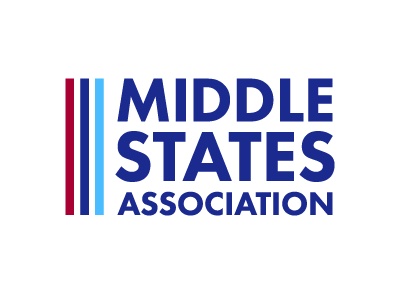JBMSHP receives Middle States Association accreditation

The Joaquin Bustoz Math-Science Honors Program (JBMSHP) is one of the first pre-college STEM programs (PCSPs) in the U.S. to earn accreditation for its progress in broadening opportunity for Black, Latina/o/e and Indigenous students in STEM from Middle States Association Commissions on Elementary and Secondary Schools (MSA-CESS). The JBMSHP earned the certification for its documented success in providing meaningful out-of-school programming that preliminary data show increases participation in STEM for underrepresented students.
The MSA-CESS accreditation is a groundbreaking step towards elevating the critical learning and skills development provided by the JBMSHP through increased visibility and value in the higher education admissions process, promoting greater equity in college admissions. Out-of-school educational program experiences are disproportionately important for students who systematically have reduced access to advanced STEM experiences in their high schools, and accreditation validates these underrecognized opportunities.
JBMSHP Program Manager, Cindy Barragán Romero, states that “MSA-CESS accreditation validates the JBMSHP’s efforts to increase the number of underrepresented students in STEM. For students, it increases their higher education opportunities by demonstrating to college admissions professionals that they are highly qualified and desirable candidates. Accreditation provides our students with a competitive edge in applying to colleges compared to their non-JBMSHP counterparts.”
As a member of the STEM PUSH Network, a National Science Foundation (NSF) funded research project, the JBMSHP was part of the inaugural cohort completing a rigorous self-study followed by a site visit from MSA-CESS. The JBMSHP is one of the first programs to earn accreditation based on documented strengthening along quality standards that are equity-centered and designed to broaden participation in STEM.
The cohort of STEM PUSH PCSPs completed a continuous improvement protocol that included a self-study documenting improvements, evidence, and future goals, followed by site visits from MSA-CESS.
JBMSHP Coordinator, Ciera Duran, states “We're so thrilled and deeply honored to receive this accreditation. This recognition shows our dedication to the continuous improvement of our program. It would not have been possible without the support of the STEM PUSH team. Their guidance and collaboration were instrumental throughout this whole journey and we are deeply grateful for their partnership."
STEM PUSH PCSPs are established, intensive, STEM-focused, out-of-school-time programs intentionally serving Black, Latina/o/e, Indigenous, and other underrepresented racially minoritized high schoolers through practices that center equity and prepare students for undergraduate STEM. These programs provide more than 100 hours of programming using rigorous curricula reflective of advances in their various STEM fields.
Preliminary data across the STEM PUSH Network show that students who participate in STEM PUSH programs enroll and persist in STEM at significantly higher rates than those who do not. Across programs with enough data, 80 percent of Black, Latinae/o/e, and Indigenous students enroll and persist in STEM for more than a year at colleges and universities.
Alison Slinskey Legg, Principal Investigator and Director of The BE STEM Center at the University of Pittsburgh, the project’s supporting organization, said the accreditation and the supporting data are important validations of the power of partnerships and community in providing students with opportunity.
“This work is challenging, and the conversation around access, admissions, and equity is shifting, but we have a constant in the dedication and talent of educators across the country working together to affect real systems change,” she said.
“This accreditation–and the results that we’re seeing– prove the collective can accomplish what no one program can, and we’re thrilled for our PCSP and admission partners, but most of all for the students who will ultimately benefit from this effort,” she added.
With MSA-CESS affirming the value of PCSP experience as preparation for success in STEM, Slinskey Legg is encouraged that admissions professionals, other PCSPs, schools, and funders will elevate the documented value of community-based, culturally responsible out-of-school experience in student success, and support this important work.
PCSPs, admissions professionals, and allies can also benefit from the resources of STEM PUSH and help advance equity in STEM by learning alongside the network. Evidence-based change ideas, presentations, and network learnings can be found on the project website.
The first cohort of accredited programs are Arthur Ashe Institute for Urban Health’s Health Science Academy, California State University East Bay MESA, Gene Team at University of Pittsburgh, Joaquin Bustoz Math-Science Honors Program at Arizona State University, New York Hall of Science's Science Career Ladder, and Peggy Notebaert Nature Museum Teenagers Exploring and Explaining Nature and Science (TEENS).
STEM PUSH welcomes admissions offices to join the STEM PUSH Admissions Network and revise current systems to recognize the STEM learning experiences of these students in the admissions and enrollment process. Together with partners, STEM PUSH aims to systematically elevate intensive out-of-school STEM learning experiences in admissions decisions. Learn more and connect here.
The STEM PUSH Network is operated by The Broadening Equity in STEM Center (BE STEM) at the University of Pittsburgh, and originally funded by the Eddie Bernice Johnson INCLUDES program. STEM PUSH is a comprehensive national effort to enhance U.S. leadership in discoveries and innovations by focusing on diversity, inclusion, and broadening participation in STEM at scale. STEM PUSH is also co-funded by the NSF Innovative Technology Experiences for Students and Teachers (ITEST) program and the Advancing Informal STEM Learning (AISL) program.